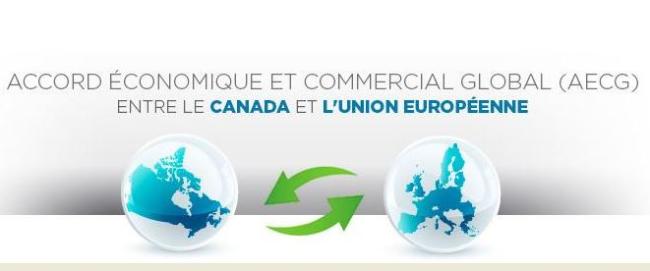Japan's Revived African Policy
By organising TICAD (Tokyo International Conference on African Development) for the first time in Africa in August 2016, Japan intended to accelerate and deepen its relationship with the continent.
Japan's Security Policy in Africa: The Dawn of a Strategic Approach?
This paper documents new features of Japan's diplomacy that tends to gradually integrate Africa into Japan's strategic interests.
Diplomatic Relations between Qatar and Sub-Saharan Africa. An Evolving Affair
In the space of 20 years, under the leadership of the former Emir, Hamad bin Khalifa Al Thani, in power between 1995 and 2013, Qatar became a country which matters due to its status, obtained in 2006, as the leading world producer of liquefied natural gas (LNG).
CETA: the Making of the Comprehensive Economic and Trade Agreement Between Canada and the EU
Once ratified, the Comprehensive and Economic Trade Agreement (CETA) could ultimately eliminate all tariff barriers between the European Union and Canada. CETA is also a new generation Free-Trade Agreement: it includes the opening of public procurement, the facilitation of cross investments and cooperation in the area of regulation. Its long negotiation process illustrated important changes that are happening in the way trade agreements are negotiated, both in Canada and in the EU.

Algeria’s Permanent State of Economic Crisis (1999-2015)
When President Bouteflika came to power in 1999, he sought to liberalise the country’s economy. But these reforms were reversed after only a few years.

The “One Belt, One Road” – Strategic Implications of a Chinese Infrastructure Network in Eurasia
China’s “One Belt, One Road” project, also known as the “New Silk Road”, aims to create a vast infrastructure network connecting three continents, with China playing the central role.
Agreement on the Trans-Pacific Partnership (TPP) in Atlanta. TPP and TTIP: Power Games in the U.S. Congress
Our analysis on the Agrement on the Trans-Pacific Partnership (TPP) in Atlanta: President Obama is now seeking approval from Congress. He might be getting more support from the Republicans.
Blaming El Norte: The Economic Realities of Anti-Americanism South of the Rio Grande
For more than half a century, Cuba captured America’s attention as a symbol of anti-Americanism right in its own backyard. As normalized relations between the United States and Cuba bring these iconic hostilities to a close, many wonder if Castro’s Cold War rhetoric is finally dead. Borne primarily by Venezuela and Ecuador, Latin America's anti-Americanism has in fact merely transformed into an equally aggravating but less consequential trend today. Economic dependency tempers this new thorn in the United States’ side.

The Country Risk Concept
The expression “country risk” emerged in the United States in the 1960s. Its meaning has evolved over time, without any definition ever really being settled on.
Turkey/GCC Economic Relations
Developing economic relations with GCC countries has become a consistent objective of the Turkish government since the coming in power of AKP. They have been successful in rallying part of the Turkish business community to this objective, thus building an internal social consensus towards opening to the Gulf.
Support independent French research
Ifri, a foundation recognized as being of public utility, relies largely on private donors – companies and individuals – to guarantee its sustainability and intellectual independence. Through their funding, donors help maintain the Institute's position among the world's leading think tanks. By benefiting from an internationally recognized network and expertise, donors refine their understanding of geopolitical risk and its consequences on global politics and the economy. In 2024, Ifri will support more than 70 French and foreign companies and organizations.














